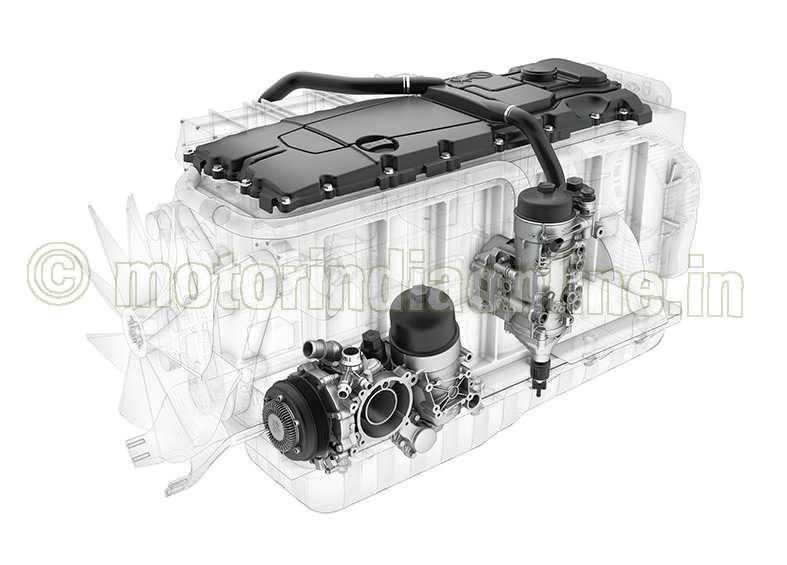The use of identical components and modular solutions makes it possible to implement engine-specific requirements for peripheral systems such as oil or fuel management at significantly lower cost. The required additional functions of a module are also easier to integrate. For this reason, MAHLE is increasingly pursuing a modular systems approach for commercial vehicles.
Today, automobile manufacturers are increasingly turning to cross-platform modular systems. Such strategies of identical components and modular design offer great potential for serving global markets efficiently in high quantities. For this reason, modular systems with a high degree of functional integration also provide numerous advantages for diverse subsystems. All of MAHLE’s current commercial vehicle applications have highly integrated functionality and, depending on the application, use customer-specific modular solutions. To be able to provide even more cost-effective solutions in the future, MAHLE is pursuing the advanced approach of a standardized, modular filter system.
Current commercial vehicle systems from MAHLE already have a high level of functional integration with minimal package requirements and weight, as well as optimal functionality under all operating conditions. Cylinder head cover modules with integrated oil separation, modular systems for fuel filter modules for commercial vehicles, and complex oil filter modules are definitive examples from the existing portfolio. The strategies of identical components and modular design have already been implemented in MAHLE systems and will be pursued even more closely in the future.
A modular filter system from MAHLE is currently being developed as a new solution for customer-independent applications, using as many identical components as possible for commercial vehicle applications. With standardized internal interfaces within the complete module, it will be significantly easier to integrate individual components into the module in the future, so that a greater focus can be placed on customer-specific interfaces.
The modular system means higher numbers built, thus reducing tooling, development and manufacturing costs. This will also make the product more interesting in the future for commercial vehicle customers with small-quantity projects.
